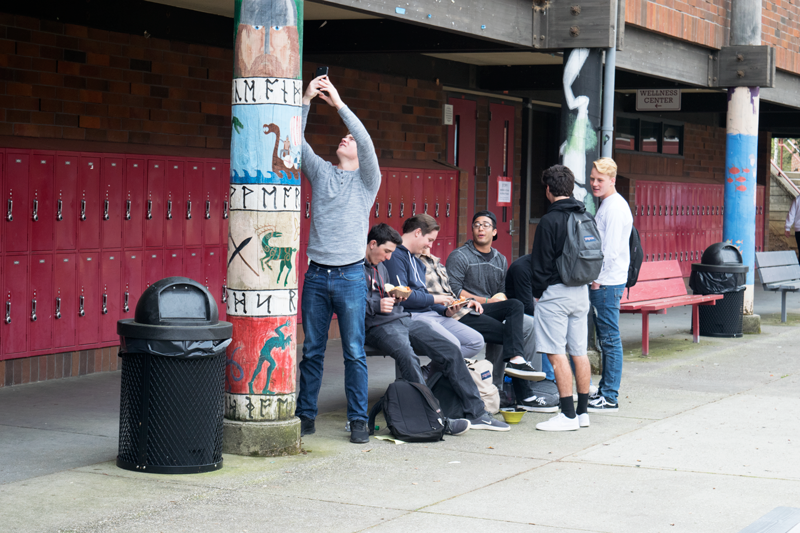Students are increasingly detached from the real world, choosing to communicate primarily through their cell phones — there is much debate over the impact of this change to the way teenagers connect to one another.
Daniel Crossen, a Social Studies Teacher and currently a Teacher on Special Assignment, said that he feels communication has only changed.
“I don’t think they’re losing connections,” he said. “I just think the nature of how your generation connects has changed. Humans will always seek a connection with each other because that is a basic need. My generation and older generations connected in different ways, surely, but striving for a connection was always there. The concept and the means of social connections has changed, but not the need for, it so I don’t see a loss.”
Julia Halverson, a junior, said that she thinks that cell phones can have both a positive and a negative impact on our social lives.
“I think cell phones can be very useful and have very positive aspects, but I do think they can have very negative effects on the way people interact,” Halverson said. “Some people are on them a lot, and it’s hard to talk to someone or hang out with them when they’re always on it.”
Sophomore Scout Pettitt said that she agrees with Halverson, as well as mentioning that phones can provide a social “shield” for some people.
“I do believe they can ruin [relationships], but I also think at some points it can do a relationship good,” she said. “I think it could ruin a relationship because things always get lost in translation, but it could improve them because some people can’t talk face-to-face very well.”
Junior Jack Kendall said that she thinks cell phones cause issues that didn’t exist back in previous generations.
“I think [cell phones] can do different things depending on how you go about things,” she said. “I know that parents will always say that when they were younger they didn’t have them, and their friendships were a lot better than the ones today, because kids are always coming home complaining about something that happened over their phones.”
Mr. Crossen said that he thinks cell phones have caused us to become less familiar with face-to-face communication.
“I don’t think it’s a matter of better or worse,” he said. “I feel it’s based on a comfort level and familiarity. I feel my generation is more comfortable and familiar with engaging and finding satisfaction in face-to-face communication as opposed to virtual communication. But that’s not to suggest we’re better at it, just more used to it as a primary means of connection.”
He continued on by saying that with this shift in technological communication, older generations are beginning to lose their personal conversation familiarity.
“I’d also say that, with the advancement of technology, cellular and social, that comfort and familiarity is shifting for my generation and older as a whole as well,” Mr. Crossen said. “Again, the more comfortable and familiar people are with a means of communication, the more apt they will be to communicate that way.”
Pettitt said that she agrees with Mr. Crossen’s statement.
“I wouldn’t say that communication is failing between people, but I would say that at times it isn’t the same as talking face-to-face,” Pettitt said. “I don’t think people understand that saying one thing over text can be completely different from what they originally meant.”
Kendall said that she thinks that there would certainly be improvement for us all without the distraction of cell phones.
“I think if you didn’t have anything else to distract you, you’d get better grades and you would do for yourself better than you do now,” she said.
— Bella Christmon contributed to this report.



































